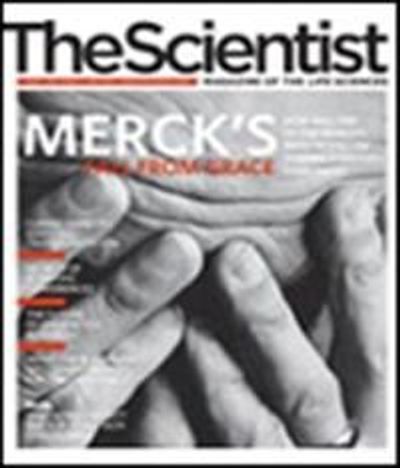What went horribly wrong in a London clinical trial?
The recent report by the MHRA on its investigation into the adverse effects in the TGN1412 trial1 concluded that an unpredicted biological action of the drug in humans is the most likely cause of the cytokine release syndrome seen in the trial participants.2 So do we have any idea on how could TGN1412 have induced a cytokine storm?
TGN1412 is a monoclonal antibody that targets the CD28 co-signaling molecule that is present on most human T-cells (>90% CD4+, ~50% CD8+).3 The antibody acts as a superagonist by binding the CD28 molecule at a site distinct from that bound by its normal ligand B7 and this effects a strong mitogenic activation of the T-cell.4 In the normal activation of T-cells, CD28 signalling is preceded by the initial triggering of the T-cell receptor for antigen (TCR) and this ensures...
References
1. A. McCook, "UK drug trial effects were 'unpredicted'," The Scientist Daily News, April 6, 2005; www.the-scientist.com/news/display/23275/2. "Investigations into adverse incidents during the clinical trials of TGN1412," www.mhra.gov.uk3. H. Bour-Jordan and J.A. Bluestone, "CD28 Function: A balance of costimulatory and regulatory signals," J Clin Immunol, 22:1-7, 2002. 4. E.J. Evans et al., "Crystal structure of a soluble CD28-Fab complex," Nat Immunol, 6:271-9, 2005.5. D. Abramowicz et al., "Release of tumour necrosis factor, interleukin-2 and gamma-inteferon in serum after injection of OKT3 monoclonal antibody in kidney transplant recipients," Transplantation, 47:606-8, 1988.6. L. Chatenoud et al., "In vivo cell activation following OKT3 administration," Transplantation, 49:697-702, 1990.7. P.A. Carpenter et al., "Non-Fc-receptor binding humanized anti-CD3 antibodies induce apoptosis of activated human T-cells," J Immunol, 165:6205-13, 2000.8. K.C. Harold et al., "Activation of human T cells by FcR non-binding anti-CD3 mAb, hOKT3g1 (Ala-Ala)." J Clin Invest, 111:409-18, 2003.Interested in reading more?




